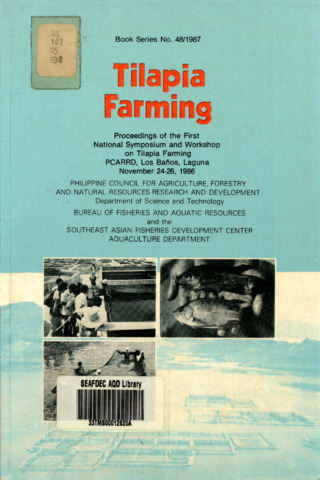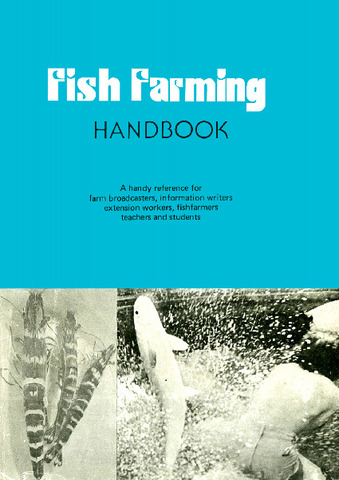White spot syndrome virus (WSSV) risk factors associated with shrimp farming practices in polyculture and monoculture farms in the Philippines
- Global styles
- MLA
- Vancouver
- Elsevier - Harvard
- APA
- Help

View/
Date
2011Page views
5,893ASFA keyword
AGROVOC keyword
Taxonomic term
Metadata
Show full item record
Share
Abstract
White spot sydrome virus (WSSV) is one of the most important viral disease of shrimp. Several studies to control the disease have been done. Tank experiments identified WSSV risk factors related to the physico chemical properties of the water. A few studies reported pond level WSSV risk factors. This study identifies the risk factors associated with essentially two different farming systems: polyculture and semi-intensive monoculture of Penaeus monodon. Data were gathered from a total of 174 shrimp farmers in eight provinces of the Philippines using a structured questionnaire. Forty-seven variables related to pond history and site description, period of culture, pond preparation techniques, water management, culture methods, feed and other inputs, and biosecurity measures were investigated. In the analysis for combined monoculture and polyculture farms, feeding live molluscs was identified as important WSSV risk factors. In addition to feeding live molluscs, sharing of water source with other farms, having the same receiving and water source, larger pond size, and higher stocking density were identified as important WSSV risk factors in monoculture farms. Climate, i.e. stocking during the cold months and sludge removal and its deposition on the dikes were identified as WSSV risk factors in polyculture farms. Protective factors, listed in decreasing significance, were feeding with planktons and high mangrove to pond area ratio, both observed in the dataset with both monoculture and polyculture farms, while only the latter was observed in the dataset for monoculture farms only. No protective factor was observed in the dataset for polyculture farms.
This study confirmed the negative effect of sharing water source with other farms and identified several new factors influencing WSSV infection such as feeding live molluscs increases the risk, while feeding with planktons and high mangrove to pond area ratio reduce the risk.
Suggested Citation
Tendencia, E., Bosma, R. H., & Verreth, J. A. J. (2011). White spot syndrome virus (WSSV) risk factors associated with shrimp farming practices in polyculture and monoculture farms in the Philippines. Aquaculture , 311(1-4), 87-93. https://doi.org/10.1016/j.aquaculture.2010.11.039
Type
ArticleISSN
0044-8486Collections
- Journal Articles [1262]
Related items
Showing items related by title, author, creator and subject.
-
Impact of seafarming: Fish farms vs. mussel farms
Southeast Asian Fisheries Development Center, Aquaculture Department (Aquaculture Department, Southeast Asian Fisheries Development Center, 1994)The article presents comparative impacts of fish and mussel seafarms. Specifically, it tackles about the impacts of the two farms on the following: solid waste production, water flow and sedimentation, effect on native ... -
Tilapia Farming: Proceedings of the First National Symposium and Workshop on Tilapia Farming, PCARRD, Los Baños, Laguna, November 24-26, 1986
Guerrero III, Rafael D.; de Guzman, Dalisay L.; Lantican, Cecilia M. (Philippine Council for Agriculture, Forestry and Natural Resources Research and Development, 1987) -
Fish farming handbook
Southeast Asian Fisheries Development Center, Aquaculture Department (Aquaculture Department, Southeast Asian Fisheries Development Center, 1980)A handy reference for farm broadcasters, information writers, extension workers, fishfarmers, teachers, and students.






